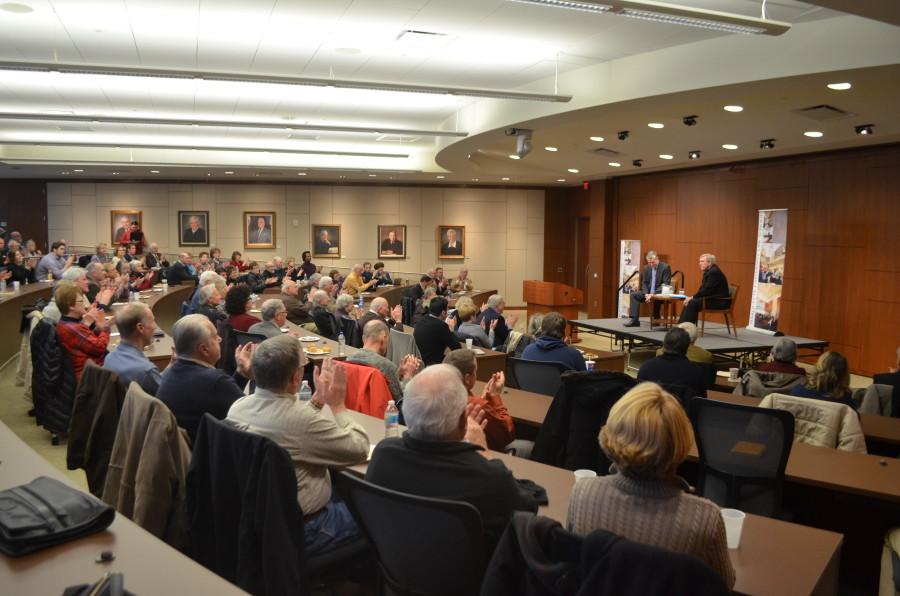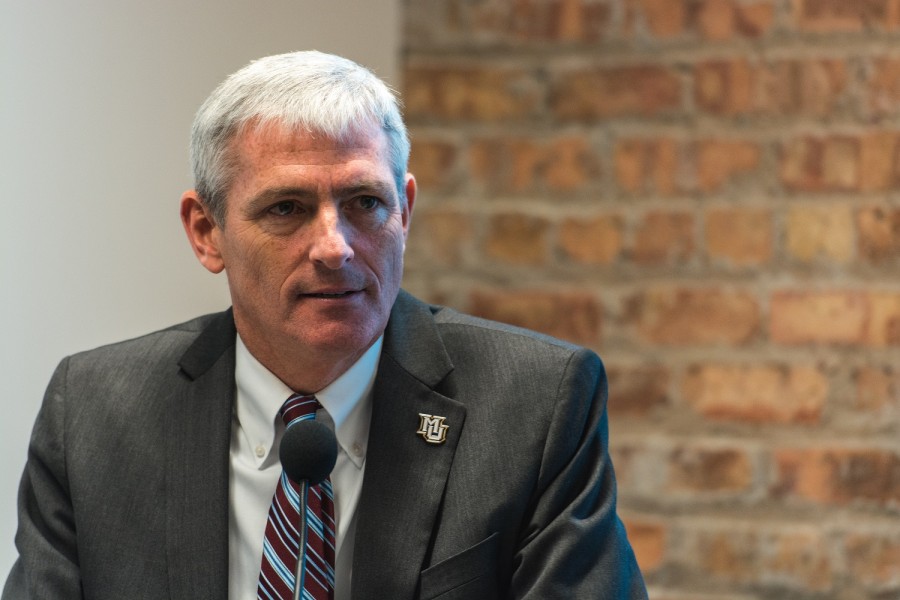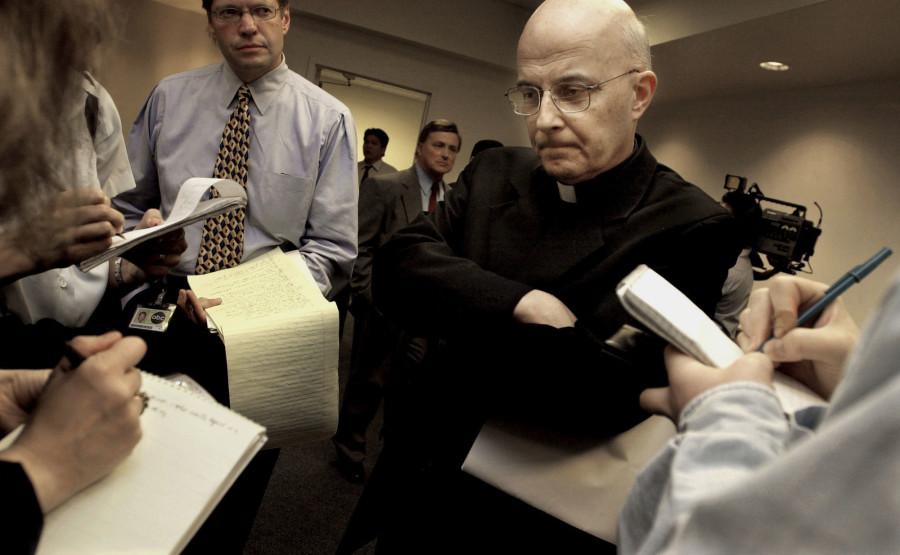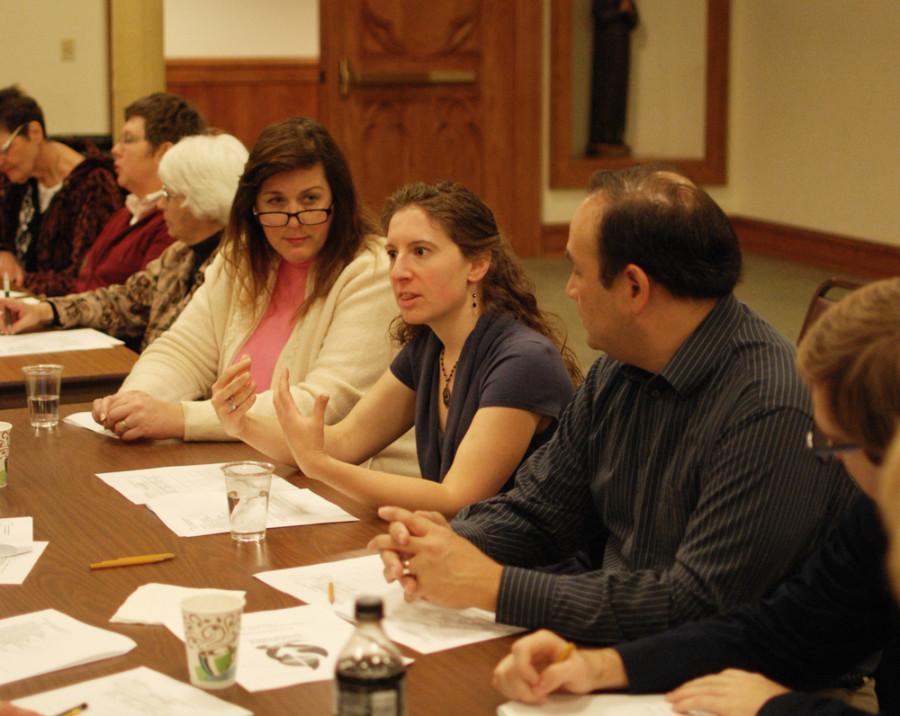The Archdiocese of Milwaukee is facing uncertain times after filing for Chapter 11 bankruptcy protection on Jan. 4.
According to the archdiocese’s website, it is filing for bankruptcy because it wants to compensate the victims who were sexually abused by priests, as well as be able to continue to provide the “ministries and services of the archdiocese.”
Chapter 11 bankruptcy, which provides federal court supervision, entails two things: “that the remaining archdiocesan resources must be fairly allocated” and secondly, “that the plan be feasible and not likely to require any further modifications to keep the archdiocese financially viable,” according to its website.
With the bankruptcy announcement, the archdiocese will ask all victims to come forward, said Julie Wolf, communications director of the Archdiocese of Milwaukee.
“One of our goals is that all of the victims are compensated equitably,” Wolf said.
Both Archbishop Jerome Listecki and Wolf believe that the initial reaction to the bankruptcy has been positive.
“While we understand the nature of the crisis, it is time to move on and get back to the work of the church, but it is important to remember what has happened,” Wolf said.
Peter Isley is the Midwest regional director of Survivors Network of those Abused by Priests (SNAP), an organization founded 20 years ago that has grown into a global organization that works with survivors of clergy sexual abuse. He feels that the archdiocese filing for bankruptcy is unnecessary.
Isley said priests’ abuse of children is not the sole reason why victims are taking the archdiocese to court, but that the archdiocese “concealed and transferred” priests that they knew were child molesters to other parishes.
“These individuals in a professional class committed breaches of public trust and should be punished no differently than any other occupation working with children or families,” he said. “Instead, they are kept in the ministry and remain employed for theological and religious reasons.”
He believes the archdiocese is filing for bankruptcy to avoid going to court for fraud. The archdiocese knew it was going to lose these court cases, so they filed for bankruptcy instead, Isley said.
He said Listecki has initiated mediations, but has yet to meet with victims. Listecki refuses to meet with SNAP because they are too emotional, Isley said.
“It’s a lot easier to open your wallet than your heart,” he said. “Victims just want the Catholics to open their hearts to them.”
Though the bankruptcy creates another rumple in the path toward justice, Isley said SNAP’s goals remain the same, and he believes many of those goals can still be fulfilled.
Isley said SNAP would first like to see a “a registry of names of known clergy who have assaulted, including religious orders.” He added the organization wants to see a full records release of what the bishops and religious priests have done with the conceal and transfers, and finally some level of individual restitution for victims.
Overall, the Archdiocese of Milwaukee has spent $29 million so far on clergy sexual abuse, according to its website.
The Archdiocese of Milwaukee is the eighth diocese in the nation to file for bankruptcy in light of the sexual abuse of minors, including the Archdiocese of Portland, Ore., and the diocese of Tucson, Ariz.
The Archdiocese of Portland, which filed for bankruptcy in July 2004, was the first diocese to file and had a similar situation to that of Milwaukee.
“We were kind of blazing the trail,” said Bud Bunce, the communications director of the Archdiocese of Portland.
Portland’s process took a little more than three years, but not all dioceses took that long. Bunce said the Diocese of Tucson filed after Portland and finished before them.
Though people’s initial reactions in Portland were fearful of losing their parishes and schools, in the end people were very supportive, Bunce said.
“It is important to know that the parishes still celebrated mass, sacrament, and the schools still taught,” he said. “The life of the church still continued.”
Parishioners at Gesu Parish had mixed reactions. While Muskego, Wis.’s Bob Knier said the bankruptcy was somewhat shocking, as he didn’t think the church was in that much financial trouble. Carol Falkowski of Milwaukee said she thought the church is “doing the right thing” even though declaring for bankruptcy will not take away the victims’ pain.
The Archdiocese of Milwaukee expects the reorganization to take about 12 to 18 months.





